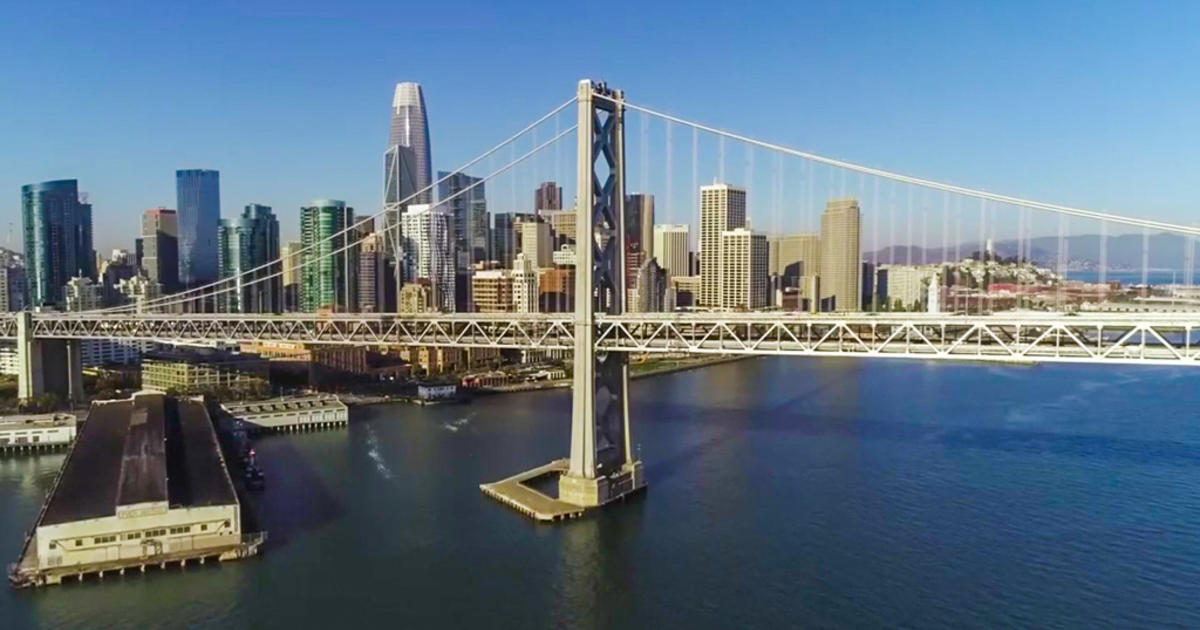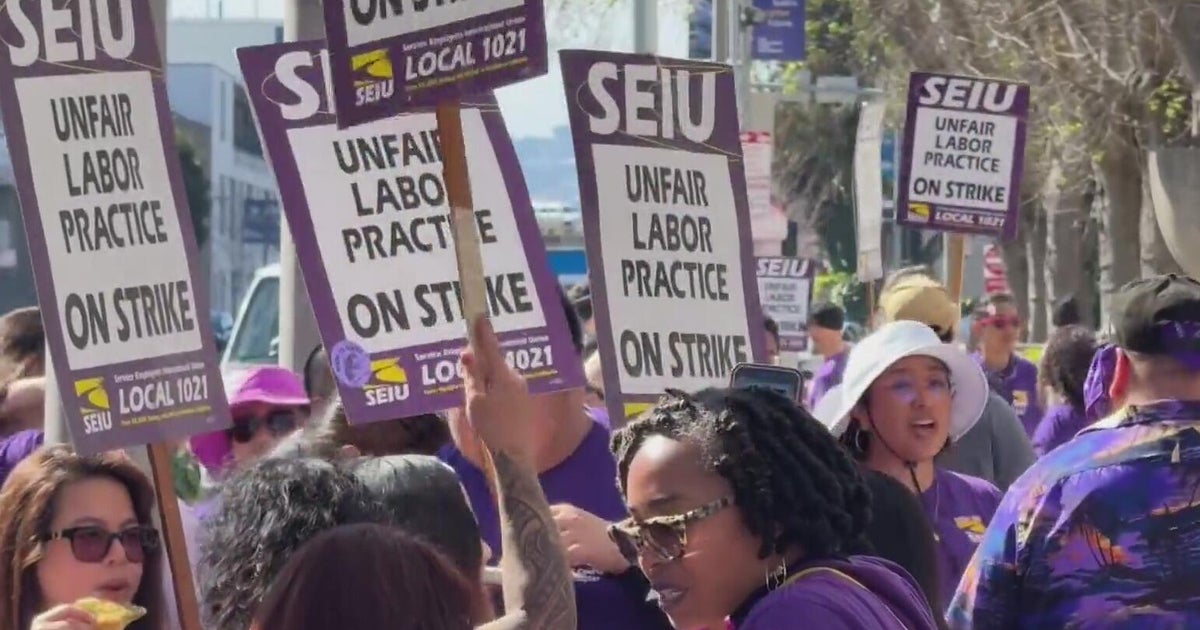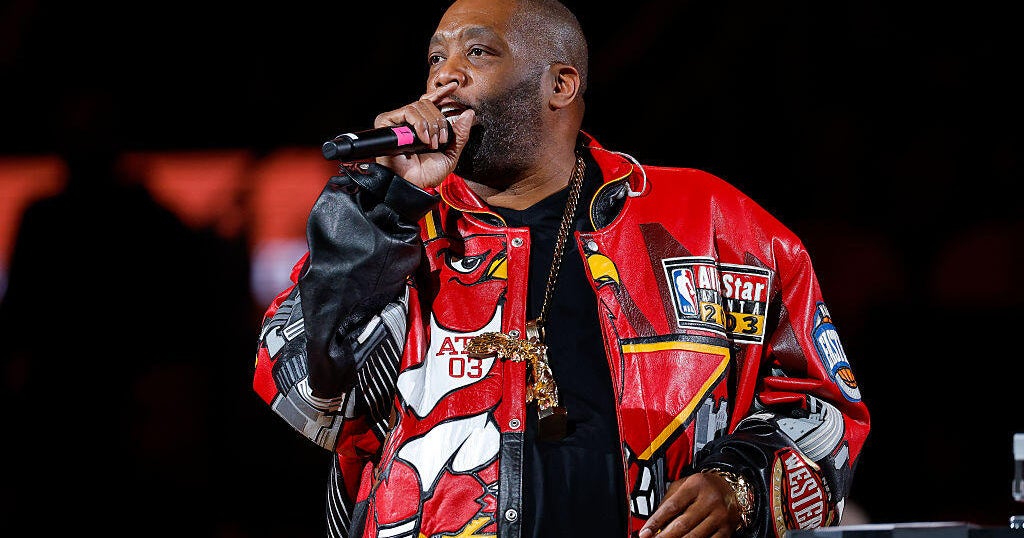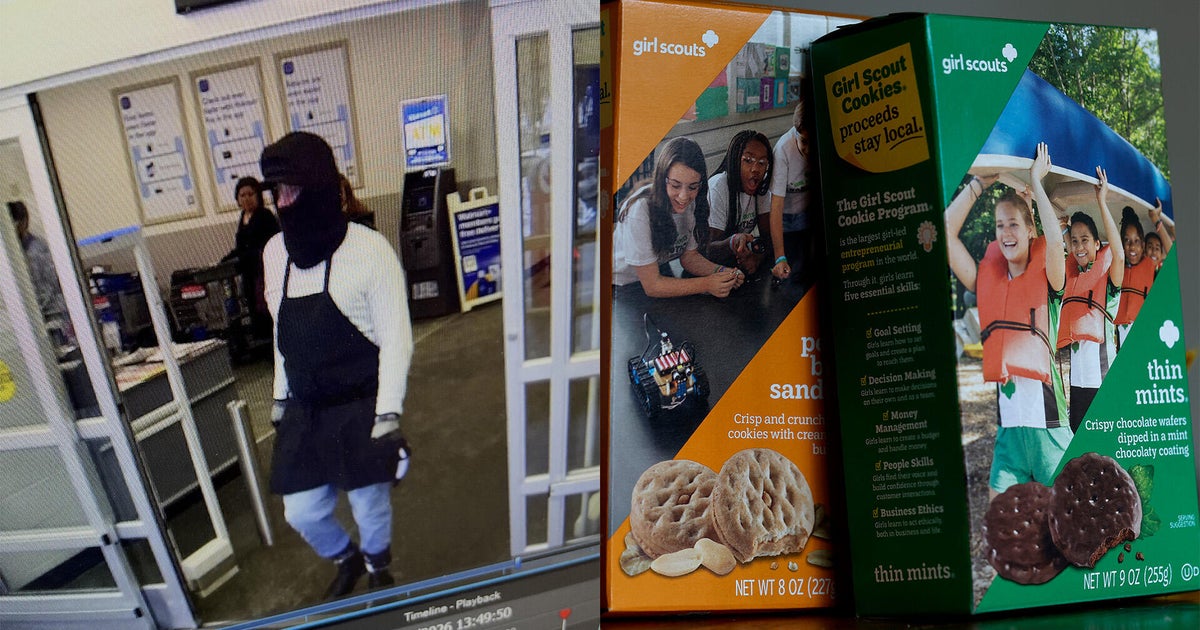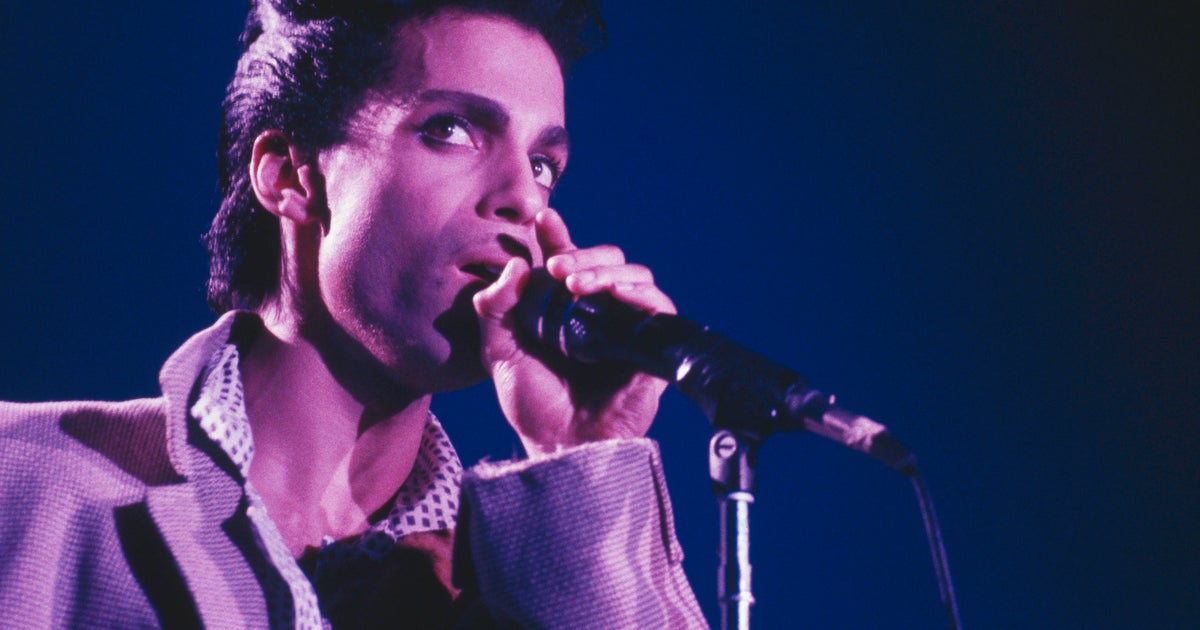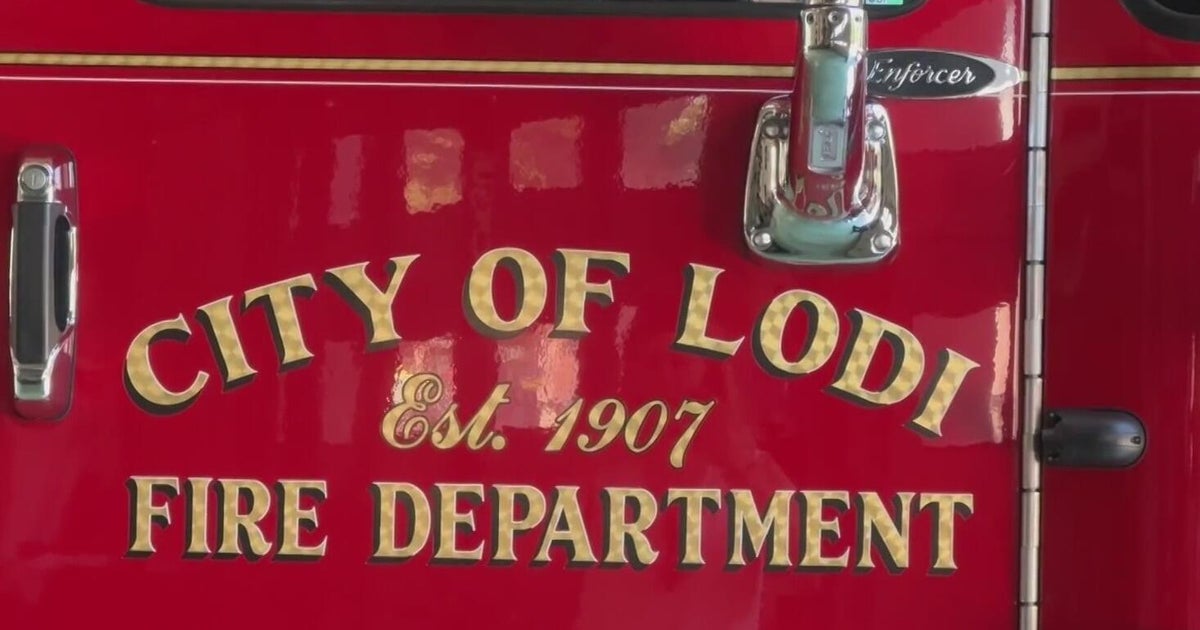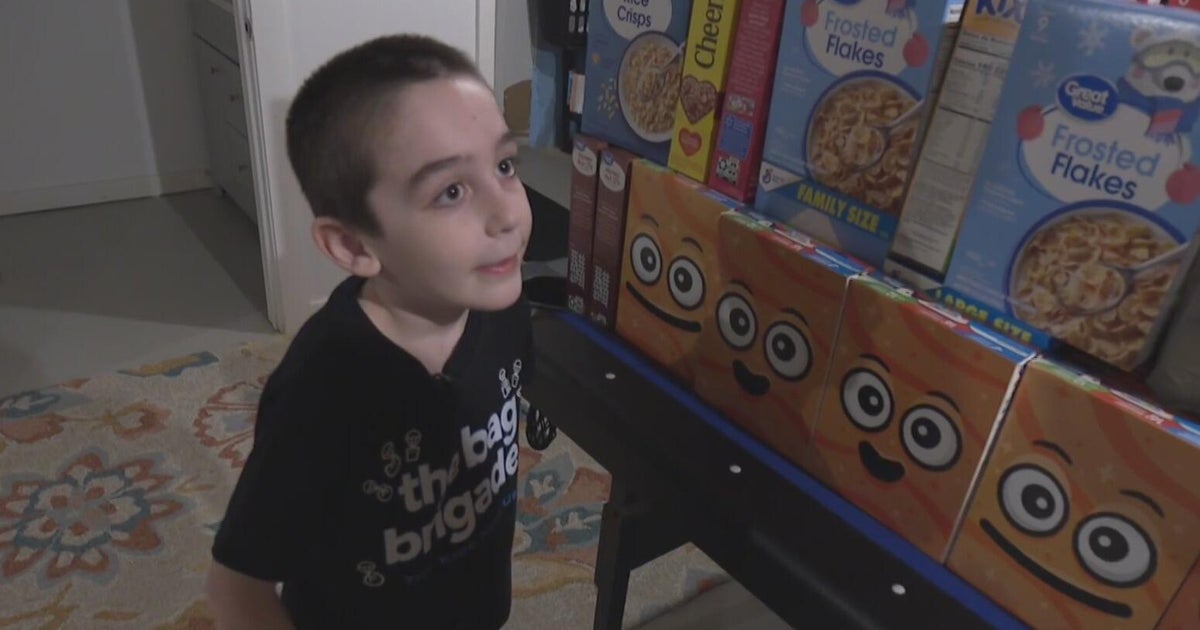CBS SF Talks To Uriah Heep Guitarist Mick Box
By Dave Pehling
SAN FRANCISCO (CBS SF) -- A significant force on the British heavy/prog scene for a half century, rock veterans Uriah Heep are heading to the Bay Area where they will support powerhouse metal act Judas Priest at the Warfield in San Francisco for two nights starting June 24.
Guitarist and sole original member Mick Box had already worked with a couple of London-based groups before his outfit Spice -- already signed to a record deal with Vertigo Records -- decided to change their name. In 1969, the band chose the moniker Uriah Heep, the name of one of the main characters from the Charles Dickens classic David Copperfield.
Spotlighting the theatrical vocals of frontman David Byron and a marriage of Box's muscular, blues-tinged guitar riffs and keyboardist/singer Ken Hensley's swirling Hammond organ, the band's debut Very 'Eavy, Very 'Umble and follow-up Salisbury dealt out a mix of proto-metal rockers and ambitious extended tunes like the latter album's 16-minute title track. Along with British contemporaries Deep Purple and Atomic Rooster, Uriah Heep were at the forefront of a newer, more grandiose style of organ-driven heavy music.
The group had continued success with Look At Yourself, further refining the template used on their preceding albums to great effect on the ornate tunes "Shadows of Grief" and "July Morning." But it was Uriah Heep's pair of 1972 efforts with new members Gary Thain (bass) and Lee Kerslake (drums) -- Demons and Wizards and The Magician's Birthday -- that catapulted the band to global fame. Featuring spellbinding imagery from longtime Yes album cover artist Roger Dean and a brace of their best songs yet ("Easy Living," "Sunrise" and "The Wizard" all remain perennial setlist favorites), the two records firmly established Uriah Heep as one of Britain's most popular progressive hard-rock heavyweights.
The band would tone down some progressive elements on subsequent recordings Sweet Freedom and Wonderworld, but still maintained its appeal to fans with catchy hits like "Stealing" and "Something or Nothing." As the '70s wore on, the band saw the departure of Byron and Thain, soldiering on with new additions John Lawton (formerly the singer for Lucifer's Friend) and former David Bowie bassist Trevor Bolden for 1977's Firefly. Eventually, songwriting and keyboard stalwart Hensley would also leave the band, leaving Box as the last founding member still with the group.
The guitarist would make adjustments in the '80s, cultivating the band's sizable German following with albums that embraced more of an AOR/pop metal style that kept Uriah Heep in business through the decade. Box would eventually find some of the collaborators who have continued to work with him to this day in Candadian vocalist Bernie Shaw and keyboard player Phil Lanzon (bassist Davey Rimmer and drummer Russell Gilbrook round out the current line-up of the band).
The band played its first show in San Francisco in some time last year when Box and company headlined the Chapel in the Mission District, playing a hit-filled set for an enthusiastic crowd of die-hard fans. Last fall, Uriah Heep released its 25th album in its long career with Living the Dream for Frontiers Records, an effort that has been widely hailed as a return to classic form. CBS SF recently spoke with Heep founder and guitarist Mick Box about the album, the band's history and its tour supporting Judas Priest that comes to the Warfield on June 24-25.
CBS SF: I got to see the band for the first time in SF at the Chapel last year and was absolutely blown away by the show. I couldn't remember when you'd played the Bay Area prior to that show. Do you recall how long it had been since you played in SF?
Mick Box: We hadn't been to San Francisco in a while. It had been at least a few years. So it was good to go back there and play. We played the Chapel, which was a really small and intimate venue, but the fans made it sound like an auditorium [laughs].
CBS SF: I also noticed looking back at the set list, it was very much a classic-era greatest hits set. The show happened prior to the release of your latest album Living the Dream came out. Were you just not playing songs from the record at that point?
Mick Box: Yeah, it was as simple as that really. In today's market, you play a song and 30 seconds later it's up on YouTube or something. So you've got no build-up. We only play the new songs live once we've recorded them and we go out to promote the album.
CBS SF: I know playing a support slot like you will be when you are at the Warfield with Judas Priest, your time is going be a bit limited. How much of the new album are you going to be mixing in with the classic songs on this tour?
Mick Box: We'll try to get two or three tracks in at the most. We're allowed an hour, so we've got a rocking set together. We're very happy with it. We realize that the dynamic of the Priest audience, the metal audience, is different. We start out with "Grazed By Heaven," the first song of the album which is a rocker, and powers through the rest of the hour.
CBS SF: So probably not as heavy on the longer extended suites or ballads for this round...
Mick Box: Well, we do go into some extended solo things where we can branch out a bit. But it's going to be tight. It'll be exciting. We can't wait! The great thing about this tour is Judas Priest have got their new album Firepower, which people are saying is one of the best of their career, and we've got our album Living the Dream, which people are being quoted as saying it's one of the best of our career. So it's two bands on top of their game, to be honest. And the other good thing about that is you've got nearly 100 years of British rock and metal there on stage that night. It's so exciting I can't believe it!
CBS SF: It does seem both bands are hitting quite an apex at this stage of your respective careers. I asked Rob a similar question when I spoke to him recently; as you were writing or recording the material, did you have a sense that you were onto something with this album?
Mick Box: I think when you're putting the initial ideas together, you're just kind of going with your gut feeling at the time as far as what's good and what's bad and what will suit the band. And then, when you give it to the band, they can be quite brutal at times. They can throw some of your ideas into the bin quicker than you can blink.
But the ones that stay on the table are the ones we work on, and we'll take them into the rehearsal room and lock them up and they start becoming very Heep-y. And of course, having Jay Ruston in the producer chair was fantastic. He kept the heritage of the band, but gave it a really fresh sound. I think that's what you hear on the albums.
But we never consciously say, "We're going to do this. We're going to do that." We let everything happen naturally, even in the songwriting process. We've got two songs on the album that you could probably put in the prog bracket, which would be "It's All Been Said" and "Rocks in the Road." Sometimes those songs, as you write them, you go, "Well, here's another bit that goes in there. Here's another bit that fits in their." They grow themselves, you know. But as long as they have melody and they're saying the right thing, it works.
CBS SF: You've worked in a number of different songwriting circumstances over the course of Uriah Heep's existence. It seems like during the early, classic era, you co-wrote a lot of things, but Ken Hensley wrote a good deal on his own. More recently, there's been more collaborative songwriting. Do you have a preference? Or did the material dictate what the band would use?
Mick Box: What happens is, you put it all on the table and whatever is the strongest, that's what you use. We had a situation in our band with the management, because of the success that Ken Hensley had at the time as our writer -- and he did write some good songs, obviously -- they wouldn't listen to anybody else [laughs]. Because Ken became his cash cow [laughs]. You know what I mean? So you had those kind of dynamics coming into play, which is a shame really. Because there were a lot of great songwriters in the background who didn't get a chance to get their songs heard.
CBS SF: I did want to get a bit into your influences as a guitarist and the band's more formative era. I was reading that you had more of a jazz background before you turned to rock. Who were some of your major inspirations as far as jazz guitarists? And did you turn to rock music for a career because it was simply a more practical goal in the post-Beatles and Stones era in England?
Mick Box: I basically had lessons for about six months -- one a week -- from a guy named Allan Hodgkiss. He was second guitarist to Django Reinhardt, so obviously his teachings were very jazz oriented. And I loved all the voicings of the chords and all that. So I got into Django Reinhardt big time. I got in to Barney Kessel, Tal Farlow and all those sort of guitarists.
That was sort of my entry. I couldn't wait for the next week to get another lesson, because we couldn't afford for me to have two lessons a week. So in other words, the lesson would give me something that would last a week and I could usually play it two hours later. And then I had to wait another week for another lesson! So in the end, I just took the road where I was just self-taught. I forgot all about scales.
I didn't want to read music, because I thought just by reading music alone, to me, I called that tadpoles on A4 [a major road through Central London]. I just didn't want to go that route. Because you're playing other people's music. I had no interest in that. I was writing new music. So I just went my on path. And it's worked pretty good so far [laughs]. I've got no complaints.
CBS SF: In other interviews I read, you've mentioned the influence of Vanilla Fudge as far as incorporating the Hammond organ into the band's sound. But Uriah Heep also had contemporaries like Deep Purple -- who I saw that you shared a practice space with early on -- and Atomic Rooster that moved in a similar direction. I guess Procol Harum and the Nice are others group that perhaps preceded you in terms of bringing the organ to the forefront in a rock context. Did those bands exert any influence? Or did you feel an association with them because of the direction you took as far as bringing in gothic, neo-classical elements?
Mick Box: Yeah, we were probably influenced more by Vanilla Fudge than anything else. That was the reason we brought the Hammond in. And the Hammond organ is such a versatile instrument. It can be very gentle or if you like it can be very aggressive. It fits every nuance of our music.So it's an obvious one for us that we'd want to use a Hammond organ. But Mark Stein [keyboard player for Vanilla Fudge] was really at the cutting edge of what was going on with the Hammond organ. He was fantastic. So he was probably more influential than anyone else.
The thing about Fudge is they always did cover songs, whereas I wanted to use that template but write our own songs. And that's the way we went. Those other bands you mention that were around at the time, they were all great. The Nice and Atomic Rooster, they were brilliant bands. We did share a rehearsal space in London. They were in one hall and we were in the other. It was a loud racket I must say, but each band came up with some great stuff [laughs].
CBS SF: Did the band have any interest in the jazz organ players that were established at the time like Jimmy Smith or Brother Jack McDuff?
Mick Box: Well, Booker T. and the MGs and that sort of stuff was a great flavor. That was a great sound, a very unique sound to them. But it didn't really influence us, no. In our music, dynamics were a very important part of what we do. If you come out powerful all the time, the longer the power goes, the less powerful it becomes. So we learned early on through classical music. You imagine putting your headphones on and sitting there drifting off to a bit of music from an orchestra, and the next minute those big cymbals and tympani come in and you jump out of your seat. So we used those sort of dynamics in what we do. Even today we use the same techniques.
CBS SF: I wanted to discuss the artwork you used for your albums a bit. You made some interesting choices over the course of your career. A couple of your biggest albums featured Roger Dean's artwork. I'm sure he was busy doing artwork for Yes and other bands, but there ever any thought of continuing to use him after the success of Demons and Wizards and Magician's Birthday? Or did you feel like you were moving in a different musical direction where that art wouldn't have fit as well?
Mick Box: Basically what it was once we'd had Roger's artwork on the Magician's Birthday album, Yes took him on exclusively. So there's your answer right there [laughs.] It was as simple as that really. He mostly did Yes stuff for a long, long time.
CBS SF: A few other albums like Very 'Eavy Very 'Umble and Salisbury and later Abominog featured what seemed like horror-inspired imagery. Those covers really prefigured what a lot of metal bands would do later, such as Iron Maiden with Eddie or what Metallica did for one of their 12-inch singles that seemed like a direct nod to Abominog. What was the thought process behind those covers?
Mick Box: I think we've always gone for the eye-catching cover, whether it be detailed art like what Roger Dean did or with Abominog where it was just in your face. I think the Abominog got voted in America the second worst album cover of the year. And the first was Ozzy, so we were in good company [laughs]! But it is flattering when other people go the same route you've gone. I don't feel bad about it at all. I think they're being inspired to go that route and that's fantastic.
CBS SF: One new tidbit I learned preparing for our talk was that at one point Uriah Heep had auditioned David Coverdale as a new lead singer. This was before he went on to such huge success in the '80s with Whitesnake. I was wondering if you had any memories about that or any regrets over not hiring him in retrospect?
Mick Box: He came down for rehearsals at this place called John Henry's I think it was, in London. He brought along a bottle of brandy in his hand [laughs] and we just jammed the whole afternoon. We had a great time and he had a bloody strong voice and a great image. He fit the bill perfectly. So we were in the throes of discussing how we could take this further if all parties agreed when his manager got the deal for him to form Whitesnake. And, of course, that was his first love. So immediately he shelved the whole Heep idea and went on to putting that band together with the Mickey Moodys and Bernie Marsdens of the world.
CBS SF: I have to say that another thing I learned in my research was some of the players who passed through the band. It's a pretty remarkable cast of characters and great musicians. I knew about John Lawton, who had sung in Lucifer's Friend, but I didn't realize what a big part Bowie bassist Trevor Bolder had played in the band. And I'd forgotten that Lee Kerslake played with you before playing drums with Ozzy...
Mick Box: Yeah, for years. We got Trevor from David Bowie and the Spiders of Mars. And then of course you've got [ex-King Crimson bassist] John Wetton, who played with Asia and all the great things he did. I think the good thing about the people who have come into Uriah Heep, they've always been the highest caliber of musicians. And I think that's kept the musical bar up high and allowed us to continue on.
CBS SF: I noticed this is not your first time touring with Judas Priest; that Uriah Heep supported them at one point during the early '80s...
Mick Box: Yes, we went out with them in the '80s in America.
CBS SF: Do you have anything that stands out in your memory during that earlier stint with Priest?
Mick Box: Not really, no. Because it was back in those days when you were all quite separated. They had their whole thing going on and we had our whole thing going on. So it wasn't like we all hung out together or anything like that. But it's great that we get to do this now, because we're all good friends. Everybody in the British camp is good people and we get on great with everyone.
CBS SF: I know Uriah Heep typically plays pretty big venues in Europe as headliners in your own right. Do you feel that audiences are a bit more receptive to a broader spectrum of heavy rock in Europe versus the U.S., where hard rock and metal fans are maybe a little more compartmentalized?
Mick Box: No, I think they're pretty equal to be honest. The bottom line is nostalgia is a very powerful drug. People love hearing the old Priest songs as well as the new stuff and the same applies to us. It's a very healthy position to be in right now.
Judas Priest and Uriah Heep perform at the Warfield on Monday-Tuesday, June 24-25, at 8 p.m. Tickets are $49.50-$99.50.

